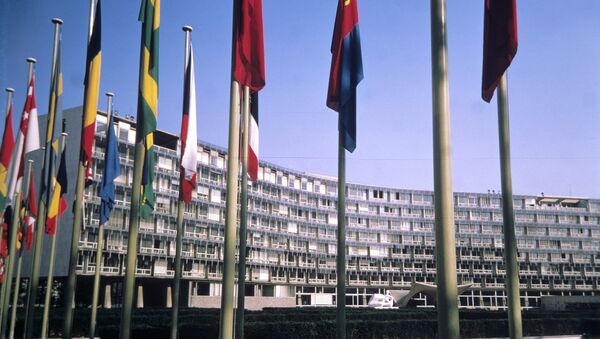The awards ceremony took place during a meeting of the UN Secretary-General's Scientific Advisory Board in St. Petersburg at the Gorny National Mineral Resources University.
This year, the international jury selected six entries from 119 applications for UNESCO/PhosAgro grants: Italy (Daniel Leonori), Australia (Alexander Bissember), Argentina (Natalia Kuichi), Bulgaria (Svilen Simeonov), Iran (Mehdi Mohammadi) and South Africa (Allan Prior). For example, Prior proposed studying cashew shells, a byproduct at nut production farms in Africa that contains Anacardium acid. In his opinion, this acid is an effective remedy for the treatment of livestock diseases.
“Our goal is to integrate advanced science into politics. We believe in scientific diplomacy, in that science knows no bounds, as scientists all over the world speak the same language. We live in an era of major upheavals, which is also an era of limitations. And we should be especially careful about using one of our resources – human talent, the ability for creativity and innovation,” UNESCO Director-General Irina Bokova said during the ceremony.
According to IUPAC President Natalya Tarasova, who is also the director of the Mendeleyev Chemical Technology University Institute of Chemistry and Sustainable Development, 11 of the 17 sustainable development goals on the UN Agenda 2030 can be achieved with the help of chemistry.
“Chemistry – a science and industry – is a driver of progress, so chemists have a special responsibility regarding ways to achieve this progress,” she said.
PhosAgro General Director Andrei Guryev said now is the time of green chemistry.
“Today, there is an opportunity to impact the future of our planet with new, significant scientific projects. I hope that each of the winners will be able to develop his ideas, opening the way to economic growth in sync with protecting the environment for future generations. I believe the implementation of these projects will also help strengthen global food security,” he said.
For the first time in UNESCO’s history, as well as the history of the UN system as a whole, the Green Chemistry project is implemented on an extrabudgetary basis, financed by a Russian company. PhosAgro has provided $1.4 million in project financing over five years. The project aims to address global sustainable development problems. It provides financial and scientific support to promising young scientists developing new advanced technology based on Green Chemistry principles to address environmental protection, healthcare, food and energy efficiency problems, as well as to ensure the effective use of natural resources.
“Environmental issues have taken center stage among humankind’s global values. This is why the project to support scientists developing new technology to reduce the negative impact on the environment is becoming an important part of an array of measures and efforts by the international community to preserve the natural environment,” Grigory Ordzhonikidze, executive secretary of the Commission of the Russian Federation for UNESCO said.



